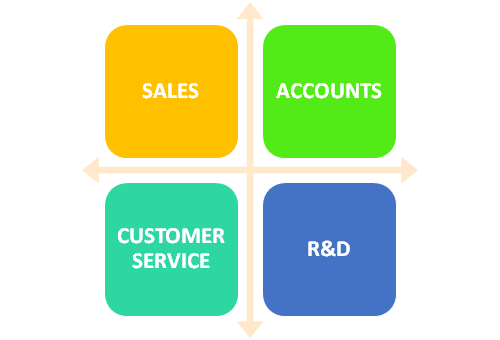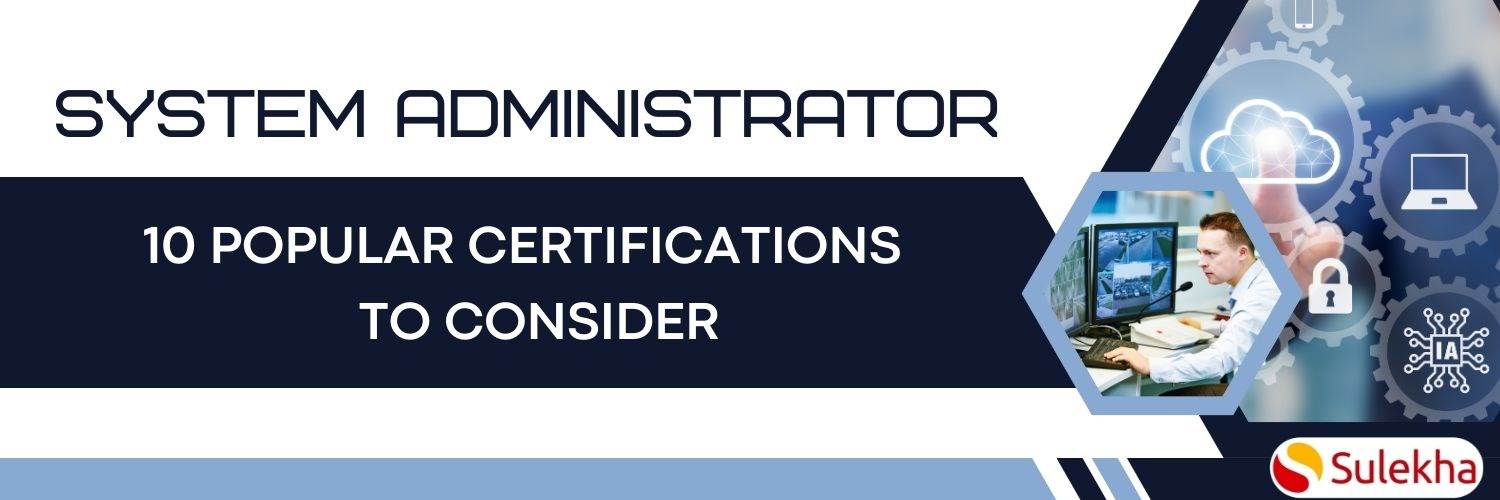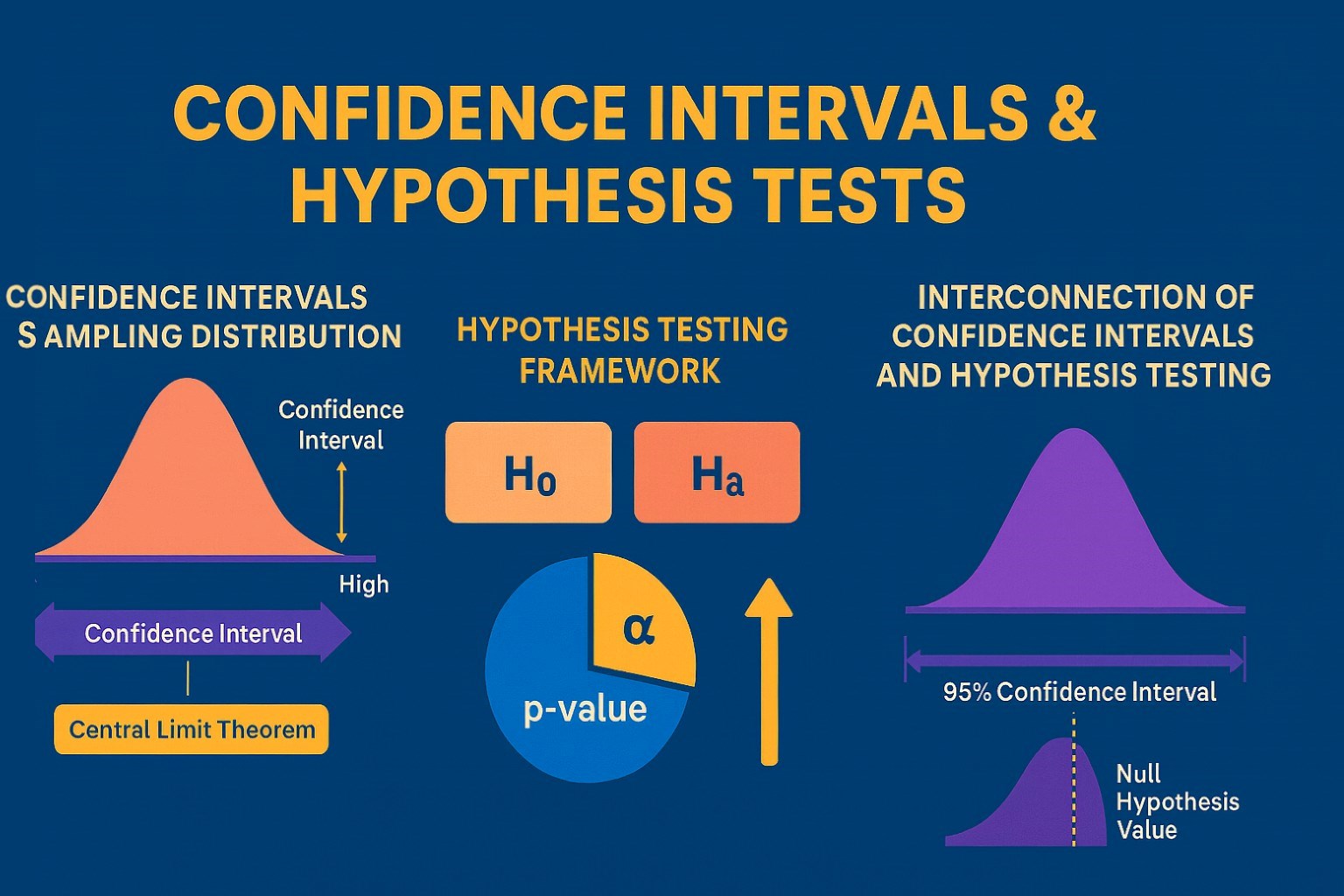System Administrators – All The Skills You Need To Be At The Top
For any business, its data center infrastructure is of critical importance. The duty and responsibility of building it and maintaining it falls on the system administrator. Of course, there are bound to be subtle variations in the requirements for system administrator positions across various companies. However, the core system administration duties more or less remain the same.
Here are the top system administration skills that every big company wants in their system administrator!
Strong Communication Skills
For effective system administration, an administrator with strong communication skills is a must. System administrators are required to communicate with end-users on a regular basis for discussing technical problems. When pressure is high and users need to work according to strict deadlines, they need to be open about the problems they face. Similarly, if a system administrator runs into any trouble, it’s up to him to notify all end-users.
Quick Assessment of Problems and Finding Solutions
Every once in a while, end-users run into problems. When they cannot find effective solutions on their own, they turn to the system administrator. Technical problems are encountered even more in bigger companies, and can be very detrimental to overall productivity. A key part of the system administration process is to find solutions for these problems to keep the work heading in the right directions. During massive system breakdowns, it is the duty of the system administrator to find some way of getting the system up and running again.
Time Management
A system administrator would be completely lost without effective time management. Apart from having their own core set of responsibilities, system administrators have to take out time to solve others’ problems as well. Typical system administration duties include analysis of system logs, performing backups, integrating new technologies, taking responsibility for security, and fine-tuning all aspects of the system’s performance. With so many things to do and more, a system administrator needs to get his routine in order. Breaks need to be minimized, and the administrator should always be ready to communicate with the other departments of the company.
Awareness of System Weaknesses

No company’s network infrastructure is absolutely flawless. Even though all possible efforts are made to ensure that the infrastructure is as stable and secure as possible, some or the other weakness remains. Security bulletins issued by trusted sources such as vendors and user groups must be acknowledged. Users should be asked to log off from their machines during periods of inactivity. Password protection needs to be ensured through regular changes.
All systems should be monitored on a regular basis in order to identify unauthorized modifications. In spite of all the security precautions, unpredictable circumstances may require system administrators to initiate disaster recovery procedures. Last but not the least, all end users must be educated regarding the necessary security protections. In the long run, this saves a lot of time for system administrators.
Relying on Automation
With testing environments being increasingly exposed to more and more pressure and stringent deadlines, system administrators are expected to develop automated processes. Automation makes the testing process a much simpler one than what is generally experienced with manual testing. In the manual testing process, different solutions have to be tested manually. In an environment with tight deadlines, it is almost impossible to comprehensively test all aspects of any particular software. On top of that, both time and money are saved through automation.
In-depth technical knowledge is a must if you aspire to be a key part in your company’s system administration. Most aspiring system administrators master popular operating systems such as Oracle Solaris, Red Hat Enterprise Linux, and Windows Server in their system administration training courses. Certain companies also use operating systems apart from the aforementioned few, and it would be wise to familiarize yourself with operating systems like MacOS X Server, OpenVMS, and SUSE Linux Enterprise Server. Learning to write programs in all these operating systems is also an important aspect, along with learning the shell for both Windows and UNIX based systems.
Find a course provider to learn System Administration
Java training | J2EE training | J2EE Jboss training | Apache JMeter trainingTake the next step towards your professional goals in System Administration
Don't hesitate to talk with our course advisor right now
Receive a call
Contact NowMake a call
+1-732-338-7323Enroll for the next batch
System Administrator Certification Training
- Dec 12 2025
- Online
Related blogs on System Administration to learn more

10 Popular System Administrator Certifications To Consider
In the ever-evolving tech landscape, the journey of a System Administrator is one of perpetual learning. Due to this, the demand for system administrator certifications proliferates as organizations seek validated expertise in managing complex IT inf
Latest blogs on technology to explore

From Student to AI Pro: What Does Prompt Engineering Entail and How Do You Start?
Explore the growing field of prompt engineering, a vital skill for AI enthusiasts. Learn how to craft optimized prompts for tools like ChatGPT and Gemini, and discover the career opportunities and skills needed to succeed in this fast-evolving indust

How Security Classification Guides Strengthen Data Protection in Modern Cybersecurity
A Security Classification Guide (SCG) defines data protection standards, ensuring sensitive information is handled securely across all levels. By outlining confidentiality, access controls, and declassification procedures, SCGs strengthen cybersecuri

Artificial Intelligence – A Growing Field of Study for Modern Learners
Artificial Intelligence is becoming a top study choice due to high job demand and future scope. This blog explains key subjects, career opportunities, and a simple AI study roadmap to help beginners start learning and build a strong career in the AI

Java in 2026: Why This ‘Old’ Language Is Still Your Golden Ticket to a Tech Career (And Where to Learn It!
Think Java is old news? Think again! 90% of Fortune 500 companies (yes, including Google, Amazon, and Netflix) run on Java (Oracle, 2025). From Android apps to banking systems, Java is the backbone of tech—and Sulekha IT Services is your fast track t

From Student to AI Pro: What Does Prompt Engineering Entail and How Do You Start?
Learn what prompt engineering is, why it matters, and how students and professionals can start mastering AI tools like ChatGPT, Gemini, and Copilot.

Cyber Security in 2025: The Golden Ticket to a Future-Proof Career
Cyber security jobs are growing 35% faster than any other tech field (U.S. Bureau of Labor Statistics, 2024)—and the average salary is $100,000+ per year! In a world where data breaches cost businesses $4.45 million on average (IBM, 2024), cyber secu

SAP SD in 2025: Your Ticket to a High-Flying IT Career
In the fast-paced world of IT and enterprise software, SAP SD (Sales and Distribution) is the secret sauce that keeps businesses running smoothly. Whether it’s managing customer orders, pricing, shipping, or billing, SAP SD is the backbone of sales o

SAP FICO in 2025: Salary, Jobs & How to Get Certified
AP FICO professionals earn $90,000–$130,000/year in the USA and Canada—and demand is skyrocketing! If you’re eyeing a future-proof IT career, SAP FICO (Financial Accounting & Controlling) is your golden ticket. But where do you start? Sulekha IT Serv

Train Like an AI Engineer: The Smartest Career Move You’ll Make This Year!
Why AI Engineering Is the Hottest Skillset Right Now From self-driving cars to chatbots that sound eerily human, Artificial Intelligence is no longer science fiction — it’s the backbone of modern tech. And guess what? Companies across the USA and Can

Confidence Intervals & Hypothesis Tests: The Data Science Path to Generalization
Learn how confidence intervals and hypothesis tests turn sample data into reliable population insights in data science. Understand CLT, p-values, and significance to generalize results, quantify uncertainty, and make evidence-based decisions.